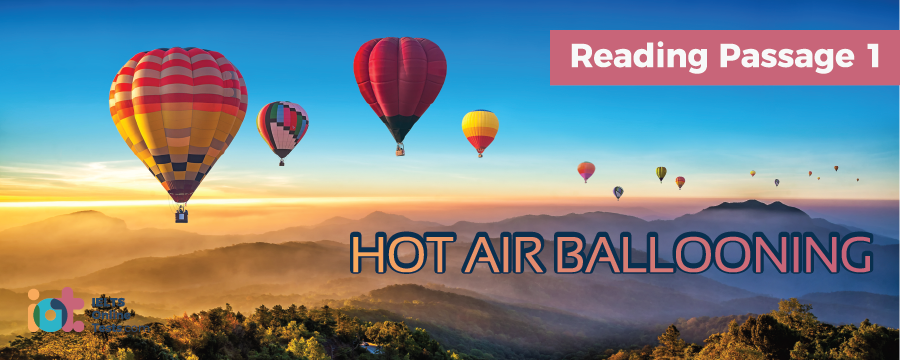
IELTS Mock Test 2021 June
- 发布时间: 24 Jun 2021
- 模考人次: 549,297
正确答案:
Part 1: Question 1 - 11
- 1 FALSE
- 2 TRUE
- 3 FALSE
- 4 NOT GIVEN
- 5 Per Lindstrand
- 6 (the) ground crew
- 7 Balloon simulator
- 8 Parachute valve
- 9 Envelope
- 10 Panels
- 11 Gores
- 1 FALSE
- 2 TRUE
- 3 FALSE
- 4 NOT GIVEN
- 5 Per Lindstrand
- 6 (the) ground crew
- 7 Balloon simulator
- 8 Parachute valve
- 9 Envelope
- 10 Panels
- 11 Gores
Part 2: Question 12 - 23
- 12 C
- 13 B
- 14 A
- 15 H
- 16 C
- 17 30,000/30000/30,000 dollars/30000 dollars
- 18 Commercial
- 19 internet service provider
- 20 Fair use
- 21 FALSE
- 22 TRUE
- 23 NOT GIVEN
- 12 C
- 13 B
- 14 A
- 15 H
- 16 C
- 17 30,000/30000/30,000 dollars/30000 dollars
- 18 Commercial
- 19 internet service provider
- 20 Fair use
- 21 FALSE
- 22 TRUE
- 23 NOT GIVEN
Part 3: Question 24 - 40
- 24 FALSE
- 25 FALSE
- 26 TRUE
- 27 FALSE
- 28 FALSE
- 29 FALSE
- 30 NOT GIVEN
- 31 Wavelength / colour
- 32 late afternoon
- 33 an eye mask
- 34 a humming bird
- 35 Lose weight
- 36 Alcohol and cigarettes
- 37 Rhythm
- 38 White
- 39 Metabolism
- 40 Nap / sleep
- 24 FALSE
- 25 FALSE
- 26 TRUE
- 27 FALSE
- 28 FALSE
- 29 FALSE
- 30 NOT GIVEN
- 31 Wavelength / colour
- 32 late afternoon
- 33 an eye mask
- 34 a humming bird
- 35 Lose weight
- 36 Alcohol and cigarettes
- 37 Rhythm
- 38 White
- 39 Metabolism
- 40 Nap / sleep
排行榜:
| # | 用户 | 得分 | 时间 | |
|---|---|---|---|---|
| Min Htaw |  | 9.0 | 15:46 | |
| Nam Nguyen |  | 9.0 | 15:55 | |
| Marjona Toshova |  | 9.0 | 16:27 | |
| 4 | Riffat Ahmad |  | 9.0 | 16:44 |
| 5 | Anh Nguyen |  | 9.0 | 17:03 |
| 6 | Mahmood Subhani |  | 9.0 | 18:13 |
| 7 | Katesirint Boontan |  | 9.0 | 18:20 |
| 8 | Linh Nguyen |  | 9.0 | 18:42 |
| 9 | Crist Dat |  | 9.0 | 19:27 |
| 10 | Phạm Huy |  | 9.0 | 19:28 |
提高雅思成绩的小贴士

10 techniques for IELTS Listening
These 10 IELTS Listening Tips provide you with essential strategies to help you get the score you need in the exam and show you how to improve...
详细试卷答案解析:
Questions 1–4
Do the following statements agree with the given in the reading passage?
In boxes 1-4 on your answer sheet write
| TRUE | if the statement agrees with the information |
| FALSE | if the statement contradicts the information |
| NOT GIVEN | If there is no information on this |
1 The Montgolfier brothers were the first people to fly in a hot air balloon.
2 Hot air ballooning became less popular in the late eighteenth century.
3 The largest hot air balloon had a capacity of over 75000 cubic metres.
4 Membership of the BFA is only open to people in America.
- 1 Answer: FALSE
Keywords in Questions
Similar words in Passage
The Montgolfier brothers were the first people to fly in a hot air balloon.
It was not until some considerable time later that a balloon was launched that was capable of carrying passengers. Initial flights were trialled by animals
Note Q1: From the text, “initial flights were trialled by animals” in a balloon, which is contradicts with “Montgolfier brother were the first people” in the question statement.
So the answer is FALSE.
- 2 Answer: TRUE
Keywords in Questions
Similar words in Passage
Hot air ballooning became less popular in the late eighteenth century.
The discovery of hydrogen-fuelled flights led to the death in 1785 of Pilatre, a tragedy which caused a downfall in the popularity of hot air ballooning but an increase in the popularity of hydrogen.
Note Q2: All keywords appear in the text such as “hot air ballooning”, “less popular & a downfall in the popularity”, “in the late eighteenth century & in 1785”.
So the answer for this question is TRUE.
- 3 Answer: FALSE
Keywords in Questions
Similar words in Passage
The largest hot air balloon had a capacity of over 75000 cubic metres.
At the time, this balloon was the largest ever constructed at 65 thousand cubic metres
Note Q3: From the text, the largest hot air balloon had a capacity of 65 thousand cubic metres which contradicts with “over 75000 cubic metres” in the question statement.
So answer for Q3 is FALSE
- 4 Answer: NOT GIVEN
Keywords in Questions
Similar words in Passage
Membership of the BFA is only open to people in America.
One of the largest hot air balloon organisations is the Balloon Federation of America. Founded in 1961, membership in the BFA attracts those with a fascination with ballooning (or ‘Lighter Than Air’ flight).
Note Q4: Some keywords appear in the text, however, it can just be inferred that membership in BFA attracts people taking interest in ballooning. No information is mentioned about the limitation for membership.
So the answer for Q4 is NOT GIVEN
Questions 5–7
Answer the questions below using NO MORE THAN THREE WORDS AND/OR A NUMBER from the passage for each answer.
Write your answers in boxes 5- 7 on your answer sheet.
Who accompanied the entrepreneur on the longest balloon flight?
5
Who follows a hot air balloon’s flight to retrieve the craft when it lands?
6
What can give newcomers to the sport some idea of the feeling of flying a balloon?
7
- 5 Answer: Per Lindstrand
Keywords in Questions
Similar words in Passage
Who accompanied the entrepreneur on the longest balloon flight?
In 1987, British entrepreneur Richard Branson crossed the Atlantic in a balloon named Virgin Atlantic Flyer. At the time, this balloon was the largest ever constructed at 65 thousand cubic metres, but four years later, he and Per Lindstrand from Sweden flew nearly 8000 kilometres from Japan to Northern Canada in their balloon the Virgin Pacific Flyer, which was nearly 10 thousand cubic metres bigger and was the longest flight in a hot air balloon ever made.
Note Q5: From Q5, we can assume that the answer must be a Noun
+ The two sentences here contains all the keywords in the question, so the answer must be in this paragraph.
+ The answer is a person/ people who flew with British entrepreneur Richard Branson on the longest balloon filght.
So the answer must be “Per Lindstrand” satisfying the word limit NO MORE THAN THREE WORDS AND/ OR A NUMBER.
- 6 Answer: (the) ground crew
Keywords in Questions
Similar words in Passage
Who follows a hot air balloon’s flight to retrieve the craft when it lands?
[…] balloons are often followed by ground crew, who may have to pick up the pilot, passengers and balloon from any number of landing sites
Note Q6: From the question, we must assume that the answer must be a Noun.
+ Take a look at the sentence above, we can see that it contain all the keywords in the question. So the answer must be somewhere here.
+ Understanding the idea in the question, the answer is about a person/ people who support the craft when a hot air balloon’s flight lands. While the question statement uses active voice, the sentence in passage is in passive voice. It is ground crew that follows balloons and a supplementary relative clause is to further explain ground crew’s job.
So the answer must be “ground crew”
- 7 Answer: Balloon simulator
Keywords in Questions
Similar words in Passage
What can give newcomers to the sport some idea of the feeling of flying a balloon?
They even boast of a balloon simulator, which although will not directly lead to a pilot’s license, it can give participants a degree of the sensation enjoyed by professional balloon pilots .
Note Q7: From the question, we can assume that the answer must be a Noun.
+ There are phrases in the given text which are similar in meaning to ones in the question statement, so the answer must be here.
+ Q7 is about something that brings people a feeling of flying a balloon. In the text, it is balloon simulator that gives them that feeling.
So the answer for Q7 must be balloon simulator.
Questions 8–11
Label the diagram below using NO MORE THAN TWO WORDS from the passage for each answer.
Write your answers in boxes 8- 11 on your answer sheet.

8
9
10
11
- 8 Answer: Parachute valve
From Q8 to Q11, the question is about the basic parts of the balloon.
The balloon itself is made of strips of fabric called gores which run from the skirt to the top of the balloon; they are further broken into individual panels. This section of the craft is referred to as the envelope . At the top of the envelope is a self closing flap that allows hot air to escape at a controlled rate to slow ascents or cause the balloon to descend descents. This is named the parachute valve, and is controlled by the vent line – the cable that runs the length of the envelope and hangs just above the basket so the pilot can open and close the parachute valve.
Note Q8: Q8 is a part which is at the top of the balloon.
At the top of the envelope is a self closing flap that allows hot air to escape at a controlled rate to slow ascents or cause the balloon to descend descents. This is named the parachute valve,
+ At the top of the balloon is a self closing flap of which name is parachute valve. So the answer for Q8 is parachute valve.
- 9 Answer: Envelope
- 10 Answer: Panels
Note Q10 & Q11:
The balloon itself is made of strips of fabric called gores which run from the skirt to the top of the balloon; they are further broken into individual panels.
+ Q11 is the strips outside the balloon running from the skirt to the top of the balloon. So the answer for Q11 must be gores.
+ Q10 is other strips next to gores. So the answer for Q10 must be panels.
- 11 Answer: Gores
Note Q10 & Q11:
The balloon itself is made of strips of fabric called gores which run from the skirt to the top of the balloon; they are further broken into individual panels.
+ Q11 is the strips outside the balloon running from the skirt to the top of the balloon. So the answer for Q11 must be gores.
+ Q10 is other strips next to gores. So the answer for Q10 must be panels.
READING PASSAGE 1
You should spend about 20 minutes on Questions 1-11, which are based on Reading Passage 1 below.

HOT AIR BALLOONING
- The birth of the hot air balloon is largely contributed to the efforts of two French brothers, Joseph and Etienne Montgolfier, who employed the fact that hot air was lighter than cool air and using this, managed to lift a small silk balloon 32 metres into the air. The brothers went on to elevate a balloon into the air ten thousand metres before it started to descend and then exploded. Arguably limited success, but their work came to the eye of the French Science Academy as the discovery of the properties of hot air balloons helped scientists to study weather patterns and the atmosphere.
- It was not until some considerable time later that a balloon was launched that was capable of carrying passengers. Initial flights were trialled by animals, but after the success of these voyages, two passengers, Jean Francois Pilatre and Francois Laurent d’Arlendes, were sent up in a balloon which travelled across Paris for 29 minutes. The men fuelled the fire in the centre of their wicker basket to keep the balloon elevated and the trip across Paris was a great success.
- The discovery of hydrogen-fuelled flights led to the death in 1785 of Pilatre, a tragedy which caused a downfall in the popularity of hot air ballooning but an increase in the popularity of hydrogen. Hot air ballooning lost further ground when alternate modes of air travel were introduced» but in the 1950s, ballooning experienced something of a revival as a leisure activity and sport. Today there are balloons of all shapes and sizes, with many unique designs.
- In 1987, British entrepreneur Richard Branson crossed the Atlantic in a balloon named Virgin Atlantic Flyer. At the time, this balloon was the largest ever constructed at 65 thousand cubic metres, but four years later, he and Per Lindstrand from Sweden flew nearly 8000 kilometres from Japan to Northern Canada in their balloon the Virgin Pacific Flyer, which was nearly 10 thousand cubic metres bigger and was the longest flight in a hot air balloon ever made. The Pacific Flyer was designed to fly in the trans-oceanic jet streams and recorded the highest ground speed for a manned balloon at 394 kilometres per hour.
- There are now a wide variety of designs and equipment available, from baskets with room for two people right up to 35 or more, separated compartments and specially designed flame resistant fabrics, but the basic parts of the balloon have remained relatively unchanged. There is a basket, commonly made of wicker, inside which are stored the propane fuel tanks. Immediately above the basket and partly wrapped around by the skirt are the burners, attached on suspension wires. The balloon itself is made of strips of fabric called gores which run from the skirt to the top of the balloon; they are further broken into individual panels. This section of the craft is referred to as the envelope. At the top of the envelope is a self closing flap that allows hot air to escape at a controlled rate to slow ascents or cause the balloon to descend descents. This is named the parachute valve, and is controlled by the vent line – the cable that runs the length of the envelope and hangs just above the basket so the pilot can open and close the parachute valve.
- At the mercy of prevailing wind currents, piloting a balloon takes a huge amount of skill but the controls used are fairly straight forward. To lift a balloon the pilot moves the control which releases propane. The pilot can control the speed of the balloon by increasing or decreasing the flow of propane gas, but they cannot control horizontal direction. As a result, balloons are often followed by ground crew, who may have to pick up the pilot, passengers and balloon from any number of landing sites. A pilot who wants to fly a hot air balloon must have his commercial pilot’s license to fly and must have at least 35 hours of flight instruction. There are no official safety requirements for passengers onboard, but they should know whom they’re flying with and what qualifications they may have. For safety reasons, hot air balloons don’t fly in the rain because the heat in the balloon can cause water to boil on top of the balloon and destroy the fabric.
- One of the largest hot air balloon organisations is the Balloon Federation of America. Founded in 1961, membership in the BFA attracts those with a fascination with ballooning (or ‘Lighter Than Air’ flight). With an active discussion forum, meetings and displays all around the USA and beyond, the BFA runs on a number of guiding principles, primarily that the future of ballooning is directly related to the safety of enthusiasts. They run a number of training courses, from a novice who is interested in getting a basic licence to pilot achievement courses. They even boast of a balloon simulator, which although will not directly lead to a pilot’s license, it can give participants a degree of the sensation enjoyed by professional balloon pilots.
------------------------------------------------------------------------------------------------------------------------
Great thanks to volunteer Hoang Ngoc Huy who has contributed these explanations and markings..
If you want to make a better world like this, please contact us.





